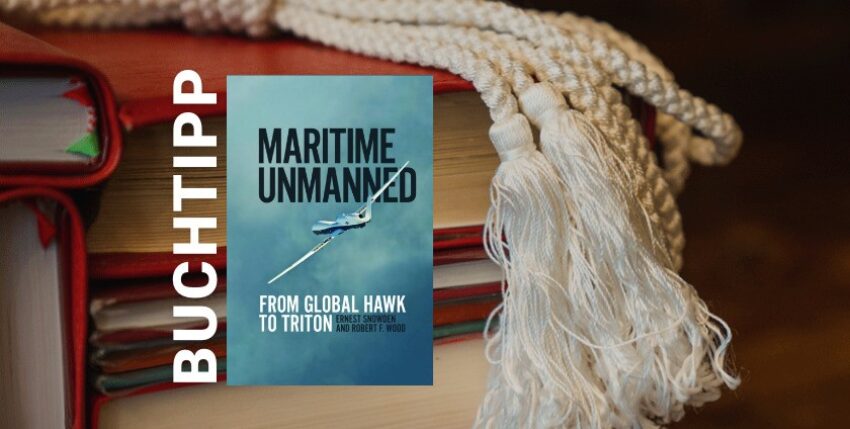Ernest Snowden, Robert F. Wood Jr: Maritime Unmanned. From Global Hawk to Triton, Naval Institute Press 2021
Although it is actually about the development of a new platform with new technologies for large-scale maritime reconnaissance, Snowden and Wood's book reads like a detective story. On the one side are a handful of visionary naval officers with their counterparts from the defence industry, on the other side are the bureaucratic obstructionists from the Pentagon and competitors in the defence industry. Some of this resistance has already been described in P.W. Singer's book "Wired for War. The Robotics Revolution and Conflict in the 21st Century".
The reader is immersed in the often opaque ways of military procurement for outsiders, in particular those for the U.S. Navy's Broad Area Maritime Survaillance (BAMS) programme, which is designed to provide global reconnaissance, surveillance and intelligence to detect, track, classify and identify maritime targets. As a system not required by the Navy, but urgently needed, and based on the U.S. Air Force's Global Hawk unmanned platform, after decades of bureaucratic battles, the addition of the Triton unmanned aerial platform now provides airborne systems such as the Maritime Patrol Aircraft (MPA) P-8 Poseidon with a system that enables long-duration control of large sea areas and allows MPA crews to directly track and potentially engage enemy surface and submarine platforms.
The reader witnesses the definition phase of a new type of unmanned weapon system, the definition of possible deployment scenarios as well as the final acceptance by the Pentagon's procurement department and the U.S. Navy; a truly incredible story.
In Germany, reading this book can provide intellectual support in the well-known struggle against bureaucratic obstacles and mental inertia. There is a lot to learn here.
Heinz Dieter Jopp Barmstedt, February 2022







